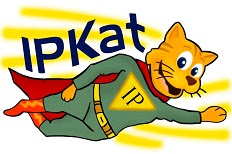Brazil: Federal Court decides for cancellation of a trademark without prior opposition at INPI
On April 6 2015, the 25th Federal District Court of Rio de Janeiro published a decision where it applied the general principles of civil law in order to accept a request for cancellation of a trademark. The court accepted the request despite the claimant not having previously used any administrative remedies in attempting to cancel the trademark.
Japanese company BANDAI NAMCO,the claimant, filed a lawsuit in 2013 against GHASSAN ALI NAHLE (defendant) and the Brazilian National Institute of Industrial Property(INPI) seeking the transfer or the nullity of three trademark registrations for the composite trademark “TEKKEN TEC”, which had been filed in 2006 before INPI by the defendant.

The claimant, filed trademark applications for the trademark “TEKKEN” in 2009 on classes 9,28 and 41. However, INPI denied registration on class 9 based on the defendant’s further registrations in 2011. BANDAI NAMCO sought to nullify the defendant’s registration and claimed that it had been using the trademark “TEKKEN” for over 20 years, long before the defendant filed for his applications in 2006. The claimant based its requests on Art. 124, XVII and XXIII, Art. 126 of Law 9.279/96 (Industrial Property Law – LPI), and Art. 6bis of the Paris Convention.
In its answer to the lawsuit, INPI agreed with the claimant’s requests. However, it pointed out that the claimant had not used the available administrative remedies to oppose and to nullify the trademark.
Hon. Judge Felipe Bittencourt Potrich considered substantial evidence showing the strength of the mark “TEKKEN” and its development by BANDAI NAMCO since 1994. The Japanese company is known worldwide for developing famous video games and other electronic games. According to the Judge, it was clear that the claimant had created and developed the electronic games alone with the understanding that the fame of the mark “TEKKEN” was built solely by the BANDAI NAMCO. Moreover, the element “TEC” from the defendant’s mark “TEKKEN TEC” was not distinctive enough to avoid confusion with the claimant’s mark “TEKKEN”.
The Judge further considered the relationship between the claimant’s product as software and the trademark system. The judge considered that the LPI prevents the registration of trademarks related to titles protected by copyright and those likely to cause confusion or association. Therefore, in his view, the fact that the defendant’s trademark implies an irremovable association with claimant’s product (software) should have prevented its registration at INPI.
 Despite the interesting factual circumstances and discussions related to the merits of the lawsuit set out above, the most significant aspect of this recent decision for trademark applicants and owners is the declaration of trademark invalidity by the court. The case is distinctive in that the court decided that the lack of opposition or post-grant review before INPI was not an obstacle to the courts findings.
Despite the interesting factual circumstances and discussions related to the merits of the lawsuit set out above, the most significant aspect of this recent decision for trademark applicants and owners is the declaration of trademark invalidity by the court. The case is distinctive in that the court decided that the lack of opposition or post-grant review before INPI was not an obstacle to the courts findings.
The court confirmed that previous case law has established that the failure to use available administrative remedies would prevent a claimant’s request for trademark invalidity before the Judiciary. However, considering the facts and circumstances of the case, and specifically the worldwide use of the mark by the claimant and possible bad faith of the defendant.
Although being a decision from court of first instance, the above case creates an interesting precedent to allow big international companies to challenge third parties’ trademark registrations directly in the courts even if they have lost the deadline for administrative remedies.
Post written by Roberto Carapeto (Roberto is an attorney at Licks Attorneys' Tokyo Office - this post is a version of the firm's newsletter here)
Japanese company BANDAI NAMCO,the claimant, filed a lawsuit in 2013 against GHASSAN ALI NAHLE (defendant) and the Brazilian National Institute of Industrial Property(INPI) seeking the transfer or the nullity of three trademark registrations for the composite trademark “TEKKEN TEC”, which had been filed in 2006 before INPI by the defendant.
The claimant, filed trademark applications for the trademark “TEKKEN” in 2009 on classes 9,28 and 41. However, INPI denied registration on class 9 based on the defendant’s further registrations in 2011. BANDAI NAMCO sought to nullify the defendant’s registration and claimed that it had been using the trademark “TEKKEN” for over 20 years, long before the defendant filed for his applications in 2006. The claimant based its requests on Art. 124, XVII and XXIII, Art. 126 of Law 9.279/96 (Industrial Property Law – LPI), and Art. 6bis of the Paris Convention.
In its answer to the lawsuit, INPI agreed with the claimant’s requests. However, it pointed out that the claimant had not used the available administrative remedies to oppose and to nullify the trademark.
Hon. Judge Felipe Bittencourt Potrich considered substantial evidence showing the strength of the mark “TEKKEN” and its development by BANDAI NAMCO since 1994. The Japanese company is known worldwide for developing famous video games and other electronic games. According to the Judge, it was clear that the claimant had created and developed the electronic games alone with the understanding that the fame of the mark “TEKKEN” was built solely by the BANDAI NAMCO. Moreover, the element “TEC” from the defendant’s mark “TEKKEN TEC” was not distinctive enough to avoid confusion with the claimant’s mark “TEKKEN”.
The Judge further considered the relationship between the claimant’s product as software and the trademark system. The judge considered that the LPI prevents the registration of trademarks related to titles protected by copyright and those likely to cause confusion or association. Therefore, in his view, the fact that the defendant’s trademark implies an irremovable association with claimant’s product (software) should have prevented its registration at INPI.
The court confirmed that previous case law has established that the failure to use available administrative remedies would prevent a claimant’s request for trademark invalidity before the Judiciary. However, considering the facts and circumstances of the case, and specifically the worldwide use of the mark by the claimant and possible bad faith of the defendant.
Although being a decision from court of first instance, the above case creates an interesting precedent to allow big international companies to challenge third parties’ trademark registrations directly in the courts even if they have lost the deadline for administrative remedies.
Post written by Roberto Carapeto (Roberto is an attorney at Licks Attorneys' Tokyo Office - this post is a version of the firm's newsletter here)














